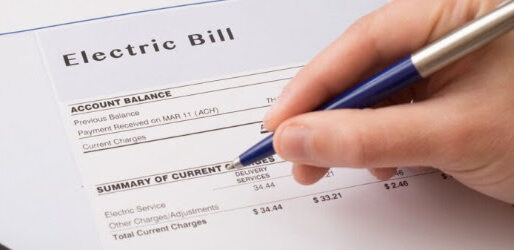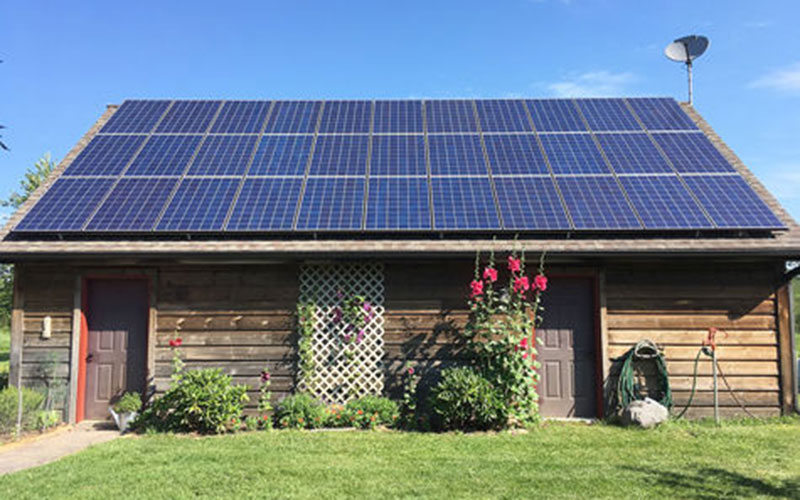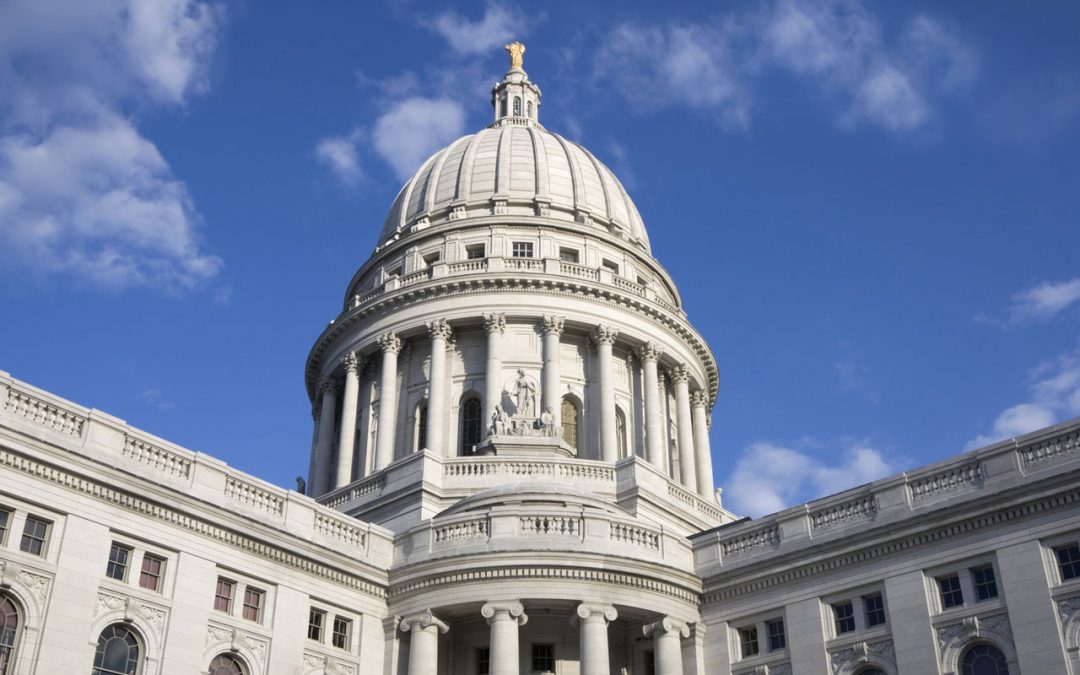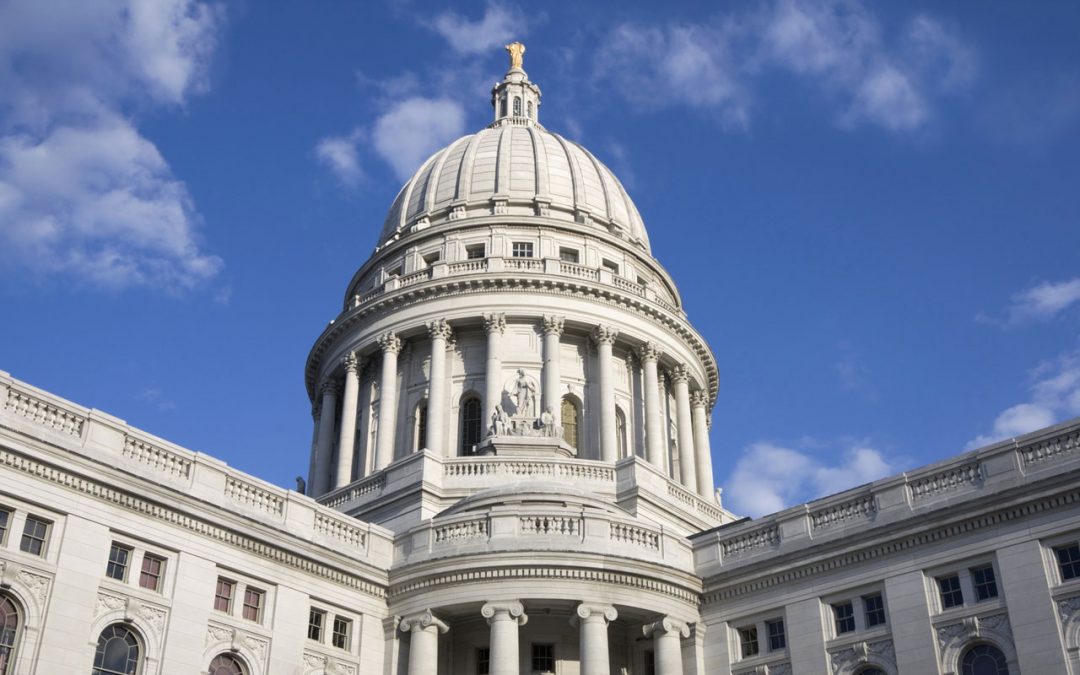
by Andrew Kell | Jul 21, 2022 | Action Alert, Advocacy, Legislative Watchlist, PSC Priorities, Solar
RENEW has assembled a team of experts to develop a comprehensive framework of Distributed Generation (DG) buyback rates as a counter-proposal to utility applications. DG buyback rates determine payments for ALL non-utility-owned electricity generation at the distribution level. For more information, please read this short RENEW parallel generation blog.
The Public Service Commission (PSC) must hear from clean energy advocates in each case. These PSC decisions will impact businesses, local governments, schools, hospitals, organizations, and individuals. We thank all of the clean energy supporters that submitted comments.
Comment periods are now closed for all cases.
WE ENERGIES (6630-TE-107)
WPS (6690-TE-114)
MGE (3270-TE-114)
XCEL Energy (4420-TE-109)
Alliant Energy (6680-TE-107)
RENEW appreciates the supporting comments that were submitted in favor of RENEW’s comprehensive framework for buyback rates. We believe this framework values DG, accelerates carbon emission reductions and provides a path for Wisconsinites to participate in building a clean energy future. Once again, more detail is provided in RENEW’s blog, Buyback Rates and the Business Case for Distributed Generation in Wisconsin.
For additional information on this topic, please contact Andrew Kell, Policy Analyst at RENEW.
Thank you for being a champion of clean energy in Wisconsin!

by RENEW Wisconsin | Mar 16, 2022 | Action Alert, Advocacy, Legislative Watchlist, Net Metering, PSC Priorities, Solar
Net metering is a billing policy that enables customers who generate electricity from solar energy to receive a bill credit for the excess energy they add to the grid. This arrangement allows residential and business customers to generate their own electricity, reduce carbon emissions, and provide substantial economic benefits to their communities.
In Wisconsin, net metering varies widely by utility. For example, some utilities use a monthly billing period for netting, while others use an annual period. Some utilities cap systems to 20 kilowatts (kW) for net metering purposes, while others have a 100 kW or 300 kW cap. Due to statewide inconsistencies across utilities, there are opportunities for policy improvements to provide clarity and better reflect the value of solar.
Solar customers and clean energy supporters have an opportunity to submit comments to the Public Service Commission in favor of protecting and improving net metering in Wisconsin. The Commission has asked for remarks on four key questions and shared a 60-page memo from the Regulatory Assistance Project describing net metering policy issues, changes to net metering in other states, and several other aspects for consideration. Comments must be received by 5:00 p.m. on Tuesday, March 22, 2022.
The PSC’s net metering questions (paraphrased):
- Do current net metering tariffs appropriately balance the ratemaking principles?
- Do current net metering tariffs align with the Commission’s mission and state energy policy goals?
- How could net metering tariffs better align with ratemaking principles and policy goals?
- What, if any, further action should the Commission take to review and reform net metering tariffs?
While RENEW is enthusiastic that the Commission is exploring ways to improve net metering, nuances in the memo could undercut rather than accelerate solar growth in Wisconsin. It is critical that any effort to rework net metering in Wisconsin protects the positive features of the current system and carefully evaluates the risks and benefits of any changes. As evidenced by the PSC’s 2021 PV potential study, Wisconsin can expand customer-owned solar, especially with the correct net metering policies. However, opening up the door to changes too quickly may put the current benefits of net metering at risk.
We encourage you to submit comments and share what’s working, what’s not, and why supporting a robust net metering policy is critical for Wisconsin’s clean energy future.
Thank you for your support!

by Jim Boullion | Mar 10, 2022 | Action Alert, Advocacy, Electric Vehicles, Energy Storage, Legislative Watchlist, Local Government
Yesterday, in a unanimous vote of 31-0 (2 not voting), the State Senate voted against concurrence in the Assembly amended version of the EV charging bill, SB 573. The bill aimed to define who can provide EV charging services, how customers will pay for it, and the electricity source for the chargers.
Wisconsin law does not have specific guidance on EV charging, so non-utility-owned EV charging stations set their fees on a per-minute basis, not on the amount of energy delivered. This policy results in owners of slower charging vehicles paying more for power than owners of fast charging vehicles. SB 573 would have allowed businesses to set fees based on the amount of electricity used, but several provisions to the bill concerned clean energy advocates.
“While this bill addressed some of the issues with current policy, it would have also disincentivized solar-powered EV chargers and severely limited local government investment in EV charging,” said Heather Allen, Executive Director at RENEW Wisconsin. “RENEW Wisconsin opposed SB 573 in its current form and applauds yesterday’s Senate decision.”
SB 573 would have prohibited charging a fee if any non-utility-generated electricity was provided through a non-utility-owned EV station. The provision would limit the use of rooftop solar and stand-alone solar+storage EV charging equipment in Wisconsin, which provides numerous benefits such as controlling energy costs, facilitating EV charging in rural areas, increasing resilience and safety, and providing carbon-free electricity.
The restrictions on local government ownership or operation of publicly available EV chargers would have reduced access to EV chargers in many underserved areas because revenue from electricity sales alone may not generate enough income to justify private business investment in small towns, urban streets, or other locations. Local government participation allows EV infrastructure to expand in areas where private businesses are not investing.
“While this particular legislation did not pass, the issues the bill was attempting to resolve remains unsettled,” said Jim Boullion, Director of Government Affairs at RENEW Wisconsin. “RENEW Wisconsin will continue to work towards better policies that help everyone in Wisconsin benefit from the fast-developing electric vehicle revolution.”

by Jim Boullion | Feb 23, 2022 | Action Alert, Advocacy, Electric Vehicles, Legislative Watchlist
On February 15th SB 573 passed the State Senate on a (mostly) partisan vote of 19-13. All Democrats voted against the bill. Sen. Steve Nass was the only GOP Senator who voted against it.
The State Assembly has placed the bill on today’s floor calendar (Wednesday, February 23rd) for a vote. If it passes the Assembly the bill goes to the Governor for his consideration.
RENEW Wisconsin is opposed to the bill in its current form (Senate Substitute Amendment 3). While this legislation clarifies that selling electricity to electric vehicles (EVs) by the minute or kilowatt does not subject EV charging station owners to utility regulation, it has several provisions that are of concern:
- Requires that all electricity sold through an electric vehicle charger must come from the local utility. This stipulation would prohibit EV chargers that get any of their electricity from a non-utility-owned rooftop or standalone solar+storage system from being available to the public if they charge a fee.
- No local governments, which includes cities, villages, towns, counties, school districts, special purpose districts, or any state agency, may own, operate, manage, lease or control an EV charging facility available to the public. Local governmental units may authorize a utility or private entity to operate a charger on their property.
For background, you can view RENEW’s testimony on this bill here.
Please contact your legislators in the Assembly and ask them to oppose this legislation unless those issues are corrected!
Thank you for your support!
Please email RENEW Wisconsin Director of Government Affairs, Jim Boullion, if you have any questions.

by Jim Boullion | Feb 14, 2022 | Action Alert, Advocacy, Electric Vehicles, Legislative Watchlist
On Friday, February 11th SB 573 was recommended for passage on a 3-2 vote by the Senate Committee on Utilities, Technology, and Telecommunications. The bill was immediately put on the State Senate floor calendar for tomorrow, Tuesday, February 15th. If the bill passes the Senate, it will go to the State Assembly, where it would be available for full adoption at any time before the end of the floor session on March 10th.
This legislation clarifies that selling electricity to electric vehicles (EVs) by the minute, kilowatt, or other means does not subject EV charging station owners to utility regulation as long as the owner meets several requirements. Among those requirements in the amended bill are several provisions that are of concern:
1. Requires that all electricity sold through an electric vehicle charger must come from the local utility. This stipulation would prohibit EV chargers that get any of their electricity from a non-utility-owned rooftop or standalone solar+storage system from being available to the public if they charge a fee.
2. No local governments, which includes cities, villages, towns, counties, school districts, special purpose districts, or any state agency, may own, operate, manage, lease or control an EV charging facility available to the public. Local governmental units may authorize a utility or private entity to operate a charger on their property.
For background, you can view RENEW’s testimony on this bill here.
Please contact your legislators in both the Senate and Assembly, and ask them to oppose this legislation unless those issues are corrected!
Thank you for your support!
Please email RENEW Wisconsin Director of Government Affairs, Jim Boullion, if you have any questions.

by Jim Boullion | Feb 1, 2022 | Action Alert, Advocacy, Electric Vehicles, Legislative Watchlist
AB 588 / SB 573 (Sen. Cowles and Rep. VanderMeer) will have a hearing in the State Senate and a committee vote in the Assembly this week at the State Capitol. This legislation attempts to clarify that selling electricity by the kilowatt-hour (instead of by the minute as is the current practice) to electric vehicles (EVs) does not subject EV charging station owners to utility regulation. However, the bill has been amended with several provisions that are of concern:
- Requires that all electricity sold through an electric vehicle charger must come from the local utility, prohibiting EV chargers that get any of their electricity from a rooftop or standalone solar+storage system from being available to the public if they charge a fee.
- No city, village, town, county, school district, or state agency may own, operate, manage or lease a publicly available charging facility. Municipalities may authorize a utility or private entity to operate a charger on their property.
The Senate Committee on Utilities, Technology, and Telecommunications has scheduled a Public Hearing on SB573 for Wednesday, February 2, 2022, at 10:30 am, 400 Southeast. The public may testify at this hearing. Keep testimony under 5 minutes and provide a written copy if possible.
Members: Julian Bradley (Chair), Roger Roth (Vice-Chair), Van Wanggaard, Brad Pfaff, Jeff Smith
Assembly Committee on Energy and Utilities has scheduled an Executive Session to vote on AB588 on Thursday, February 3, 2022, at 11:00 am, 412 East, State Capitol, Madison. There is no public testimony at this hearing (the public hearing was in October). View RENEW’s testimony on this bill here.
Members: Mike Kuglitsch (Chair); David Steffen (Vice-Chair); Travis Tranel; Loren Oldenburg; Warren Petryk; Adam Neylon; Tyler Vorpagel; Gary Tauchen; Kevin Petersen; Cody Horlacher; Beth Meyers; Lisa Subeck; Deb Andraca; Supreme Moore Omokunde; Sara Rodriguez
Please contact your legislators, especially if they are members of one of those committees, and express your concerns with this legislation.
We also encourage you to attend the hearing in the Senate Utilities Committee on February 2nd to oppose these restrictions.
Thank you for your support!
Please email RENEW Wisconsin Director of Government Affairs, Jim Boullion, if you have any questions.




